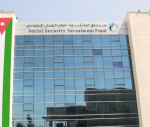You are here
Enhancing youth enrolment in education
May 10,2017 - Last updated at May 10,2017
Jordan should accommodate its rapidly growing population by prioritising the enrolment of youth in higher education.
To facilitate this, civil society organisations (CSOs) should adapt to how society, as well as the stakeholders and beneficiaries of civil society programmes, are changing.
One question that remains largely unaddressed concerns what CSOs might learn from the private sector in this process.
Jordan faces many challenges, including conflicts along its borders and an unprecedented influx of refugee.
Other challenges are internal. Unemployment rates reached 14.6 per cent during the first quarter of 2016, and in 2015, only 57.5 per cent of males and 65.9 per cent of females aged 16-18 were enrolled in secondary schools in Jordan.
And far less progress is registered in higher education. Also in 2015, only 29.8 per cent and 33.7 per cent of males and females, respectively, aged 19-23 were enrolled in university.
Jordan needs a sustainable approach to strengthening youth education that matches critical thinking and innovation to job opportunities and sectorial growth.
Interestingly, this seems to be the approach favoured by the private sector.
As I discussed corporate social responsibility (CSR) strategy with several influential actors, I was struck by their innovative yet simple solutions to tackling youth under-enrolment and under-employment.
While it is not denied that many companies regard CSR as a tool to enhance their public image and strengthen bonds with consumers, others are strongly motivated to support local communities with the aim of accelerating development.
Each CSR representative I interviewed spoke with pride about his/her company’s youth work in local communities.
They noted the importance of “giving back to where you come from”, and each company appeared to have genuinely adopted the “think global, act local” mantra.
Their youth education programmes had a clear vision and strategic, long-term goals.
One representative highlighted his company’s strict quality control standards, noting that if a vocational training programme does not generate employment, it is cancelled.
This strategic linking of education with sustainable employment shows an ability to identify failure and “self-correct” that is often lacking in seasoned development agencies.
One company offers scholarships to young people, but requires beneficiaries to undertake community work in return.
Another provides support to tech start-ups, offers a scholarship programme with partner universities and employs an intern from one of these programmes.
Yet another couples scholarships with job-shadowing; the message is: “If one works hard on one’s education and employment, doors will open.”
While it may sound counterintuitive, there is no doubt that development actors and CSOs in Jordan could learn from the education programmes being rolled out by the private sector.
Better linkages and complementarity might also expand reach and create synergies.
As one company CSR representative noted, “there is a huge issue of duplication work amongst CSOs in Jordan”.
Education is a tool that serves as a key to further progress for individuals and the collective.
Within the Jordanian society, there are few groups that have more at stake for the future than the youth.
We owe it to them to work collaboratively as members of a wider community of practice in Jordan.
The writer is a researcher at the WANA Institute working on strengthening civil society in Jordan. He contributed this article to The Jordan Times.












